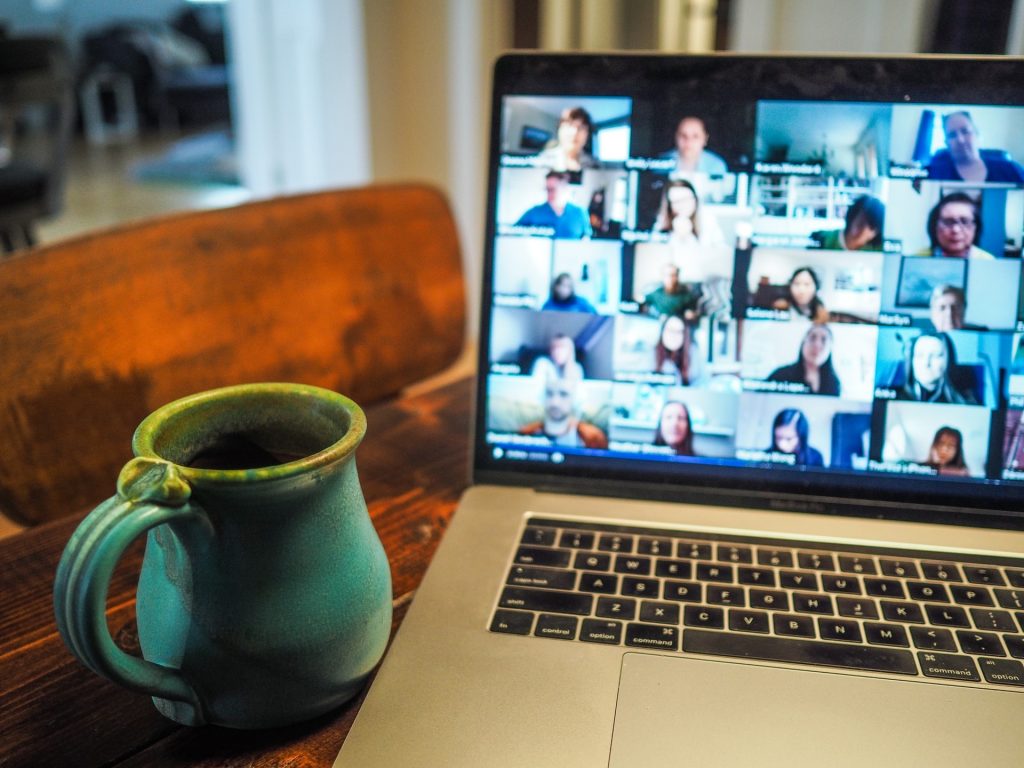Making the difference between a memorable session and just another draining online call

Video meetings are the new norm in today’s workplaces. You can’t get through a single day without hearing the words “Zoom call”. We use Zoom for so many purposes; work meetings, networking sessions, training and workshops, live forums and services.
The good and bad of video meetings
Good video meetings
High engagement and interaction
A level of creativity
Good etiquette
Great facilitation
Intention and purpose
Bad video meetings
Distractions
Dodgy tech
Poor etiquette
Zoom fatigue
No purpose
Nine out of ten times, this comes down to the quality of planning and preparation from the meeting host. Having a savvy and attentive co-host or two will make the difference between a sweet and memorable session and another draining online call.
Here are the pro tips for hosts and co-hosts to make your video meetings, Zoom or otherwise, work really well or become another statistic in the #zoomfail squad.
Welcome and onboard participants
Giving your participants a great experience in your meeting starts even before they enter the meeting room.
Whether they have registered through your site or are on your staff team and are joining the weekly meeting, give them all the information they need prior to the meeting so nobody is left behind.
Remember to provide:
- the meet link and password
- adequate instructions for technology and access
- purpose, agenda and outcomes to set reasonable expectations
- any extra instructions and housekeeping (eg. this session will be recorded)
As people are entering the meeting, welcome participants by name and have a few conversation starters on hand before the meeting officially starts. For latecomers, you can welcome them and provide any missed information via a private chat.
Provide technical support
To provide adequate support, you need to know the platform well, how to access required features and understand where people can get caught out with technology.
The co-host will be the main person providing support if the host is presenting. To assist with your support:
- Ensure participants know who to ask questions to before kick-off
- Have an FAQ tech document available with relevant links and responses (e.g. how to test camera, sound, microphone, what to do if Internet connection is glitchy, alternative ways to connect)
- Have a checklist of all the features and requirements for the meeting (e.g. recording, screen-sharing, poll)
- Have a runsheet for the session with timings, agenda and who is responsible for each item
- Be available on the support email for anyone who is stuck trying to connect into the meeting
Facilitate safe conversations and valuable interactions
Now that everyone is in the room and ready to go, it’s time to bring the real value.
Half of the value is in the content provided. The other half is in the quality of the interaction with participants.
People will either be bored and walk away with another forgetful meeting or be engaged and leave empowered to progress your mission. Clarity of the meeting purpose is crucial for this.
Now you know the true intention of your meeting, design your interactions to gear your participants towards the end goal. Interactions should be natural and frequent.
Virtual meetings are a very different experience to face-to-face meetings so you must aim to be clear and concise. Err on the side of less is more.
- Check in with participants regularly to make sure they are with you. Every 5 to 10 minutes is not unreasonable. This will mainly come from the presenter. Ask questions like “Does this make sense? Give a thumbs up or wave into the camera.”
- Give regular opportunities for interaction and Q&A. Invite your participants to engage from the outset.
“Don’t be shy to ask questions and provide responses when requested. You get out of the session what you put in!” - Use visuals where appropriate
- Ask open questions and get people to respond in the chat window. Read out answers as they come in. Follow up interesting responses to continue the conversation. Invite individuals to unmute their mic to expand the conversation further
- Consider other creative ways of interacting with participants like polling and breakout rooms
Moderate and mute if required
There will be times when participants and presenters unintentionally leave their microphone) and sometimes off!) when they should not. Be ready to find the erroneous participant and hit that mute as quickly as you can to avoid further distraction from the audio.
There may also be times when someone has overstepped the line of poor etiquette. Be proactive and move swiftly to close down their microphone, camera, screen-share. You may need to have words in chat privately or address it publicly if it involves the group. In the worst case scenario, be prepared to remove them from the room altogether. Respond quickly and proactively. Hopefully this will never happen to you!
Share screen for presentations, videos and other resources
Some presenters and hosts are not so savvy or familiar with Zoom. Being available to support their presentation will go a long way to providing a smooth experience. If they need assistance, try to get their content ahead of time so the co-host can do all the behind the scenes presentation work. Ask the host or presenter(s) to provide:
- Powerpoint, videos and other documents to share on screen
- Provide links and other useful resources to be shared with participants in the chat throughout the session or at the end
Final tips
- Know the platform
- Know your audience
- Support your host and presenters
- Ensure administrator settings and meeting settings are correct before the meeting starts
- Test and practice with the presenters before you go live
If you need assistance in preparing for an important virtual meeting or workshop, or you require technical support for a meeting, send us a message.



